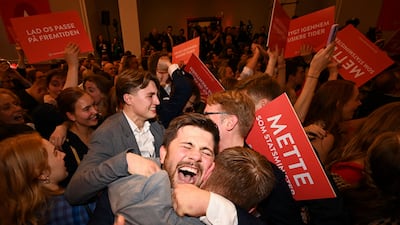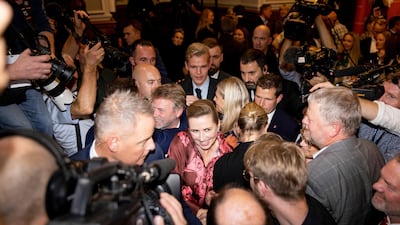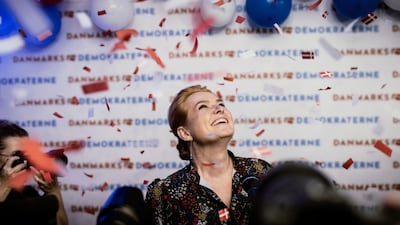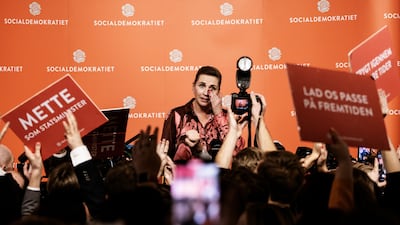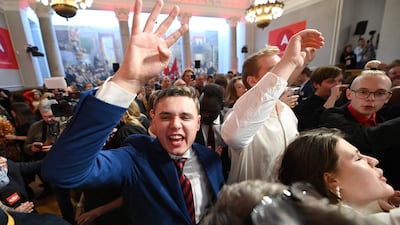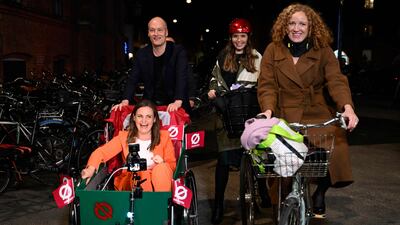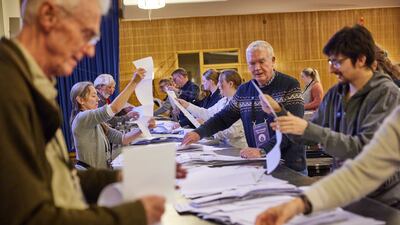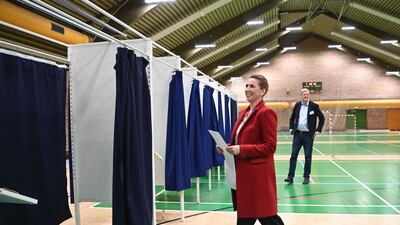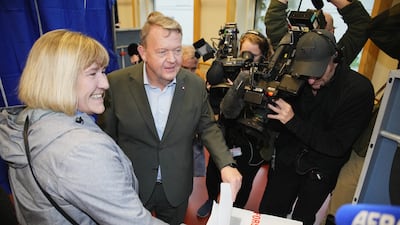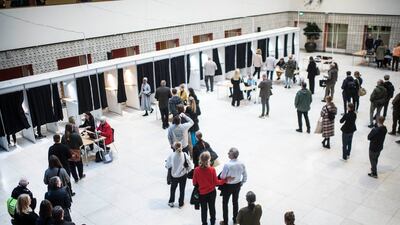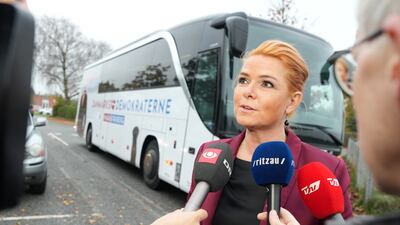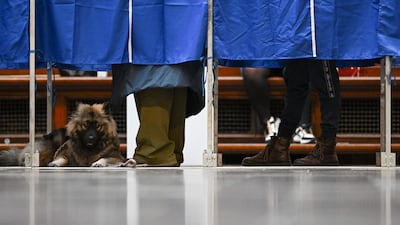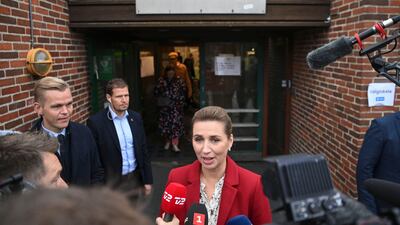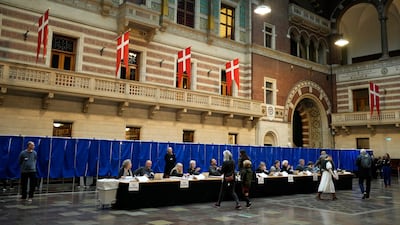Danish voters headed to polling stations on Tuesday in a snap election that could deliver a messy political stalemate.
A new centrist party founded by former prime minister Lars Lokke Rasmussen may hold the balance of power after polling day.
Late polls suggested the left-wing “red bloc” led by Prime Minister Mette Frederiksen’s Social Democrats will win the most seats.
But neither they nor the “blue bloc” of right-leaning parties are projected to win an overall majority.
“No one can count to 90 without Lars Lokke,” one newspaper headline said, referring to the number of seats needed for a majority.
The election was triggered by a scandal concerning the bungled mass slaughter of mink, who were found to be spreading a mutation of Covid-19.
The cull decimated Denmark’s fur industry and led to investigations that found the government acted illegally and misled the public.
Ms Frederiksen, 44, was forced to call an election but is running for another term on a no-experiments message in stormy times.
She voted early at a badminton centre turned into a polling booth north-west of Copenhagen.
“This election could be really close, and there is a risk that there will be a blue government after today,” she said.
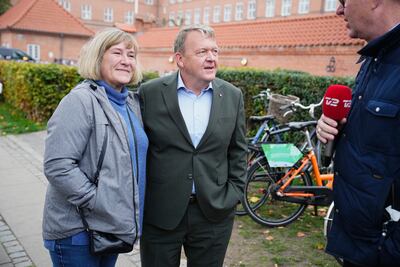
Jakob Ellemann-Jensen, a Liberal Party candidate for prime minister, is calling for healthcare reform, a tax freeze and to keep pursuing the mink scandal.
His party wants a targeted increase in immigration to fill labour shortages in the Danish economy.
Mr Ellemann-Jensen is openly courting the support of Mr Rasmussen, himself a former Liberal prime minister from 2009 to 2011 and 2015 to 2019.
“If you want the things you dream of, which were grown in our common backyard, then come home,” Mr Ellemann-Jensen said in one TV debate.
Ms Frederiksen, whose government has taken a hard line on immigration, is promising to pursue a deal with Rwanda similar to the one it has with the UK.
She has signalled she would be willing to lead a unity government and would consider reforms to health care.
But Mr Rasmussen is keeping his options open after seeing his new Moderate Party climb in the polls.
The party is promising to bring people together to tackle issues such as integration and the fraying welfare state.
“Our focus in the election campaign has been politics and we talk about something, not someone,” Mr Rasmussen recently said.
Mr Rasmussen has bounced back from political setbacks before, including election defeats and a scandal involving luxury suits paid for with expenses.
Polls suggest the Moderate pitch is cutting through most among people in Copenhagen and those who like Mr Rasmussen personally.
Although the Moderates are unlikely to be the largest party, there has been speculation that Mr Rasmussen could seek the top job in a unity government.
He has remained coy on that subject, saying he does not expect to be prime minister but would take the job if offered it.
It has sparked comparisons to the hit TV drama Borgen, in which the leader of a centrist party manoeuvres her way to becoming Danish prime minister.
The first results are expected after polls close at 8pm local time on Tuesday.
In a tight race, the four seats allocated to the Danish territories of the Faroe Islands and Greenland could prove decisive.
